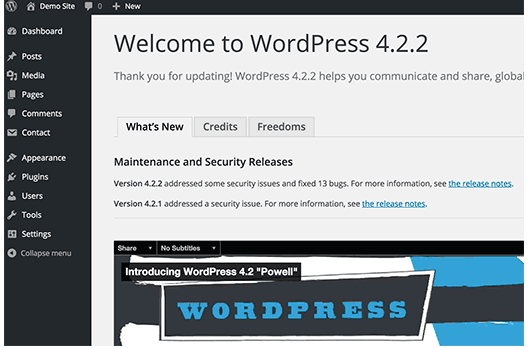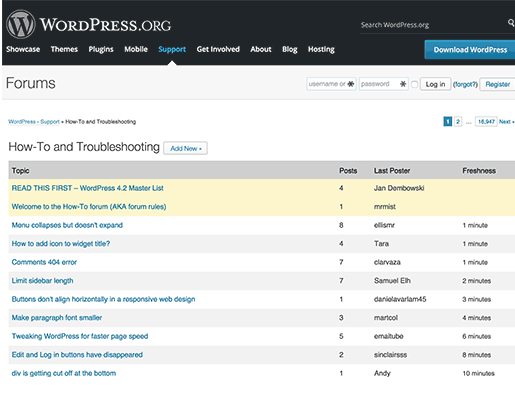If you need an easy-to-use website to strengthen your brand presence, you’ll be hard-pressed to find a better content management system. Are you also looking forward to launch a website, but have no idea which CMS – (WordPress or Drupal) will deem fit to your business specifications?
Keep Reading as this blog attempts to answer all your queries:
Drupal is one of the most prominent content management systems used by about 2.1% of all websites worldwide. It is the second most preferred CMS after WordPress, which as of April 2016 is used by more than 26.4% of the top 10 million websites. Both of these alternatives are open-source, developed and maintained by community of thousands, and are available free to download. Determining which one is better than the other clearly depends on the requirements, goals, technical expertise, and budget.
Let’s take a look at differentiating factors for better comprehension:
Simplicity to Use: It is an important factor that makes difference between the two. If you possess the least technical expertise then WordPress is the best choice for you. Its user-friendly interface lets users start blogging within a jiffy with the help of WYSIWYG editor. On the other side, Drupal Hosting is difficult to learn because of the fact that nodes have relationships and dependencies.
To put it simply, Drupal Hosting is meant for technically sound users, whereas WordPress enables both novice and experienced users to get started with utmost ease.
Upgrades: In WordPress, the upgrades are done every 3-4 months, without asking end-users to put any effort into it. This is all rendered seamlessly at their end only. When it comes to Drupal, the database is upgradable but not the code. Thus, you need developers in place to keep up with this upgrades. Let’s say if you are upgrading Drupal 7 to Drupal 8, the process involved is intensive and may require re-designing. More precisely, when you upgrade to the later version, all the content is easily migrated, but most of the code are required to be re-written.
Security: It is one of the key differentiator that needs to be considered when making a choice. When it comes to security, Drupal is considered as an optimal CMS as it provides enterprise-grade security and scalability. A host of government websites are built on this platform including the Whitehouse.gov because it provides in-depth security reports and have quick provision to fix all the glitches. While WordPress hosting offers a large portfolio of plugins, the chances of getting hacked can’t be overlooked. Sites can be completely annihilated, if a hacker gets an access to a plugin, also if you have not hosted it in a robust hosting environment.
Customizations: When it comes to customization, both Drupal Hosting and WordPress Hosting come with themes and plugins to extend the functionality of a website. And, this is the simplest way. WordPress comes with a plethora of pre-installed themes. You can anytime configure the free themes from the www.wordpress.org to change the look and feel of your mission-critical website(s). Plus, it also offers some premium themes, giving you more control over your website and enabling you to change the every aspect of a website that you wish to do.
The number of plugins and themes offered by WordPress are greater than that of Drupal, which makes WordPress the most flexible platform for all. Unlike WordPress, Drupal Hosting uses modules and most of them are not available for free to download. Besides, there are not as many themes available as WordPress so you need to put extra efforts to get your desired website design.
Support: It is always important that you have right people and right support by your side when eyeing to launch a website as you never know when technical emergencies can arrive. WordPress has a strong community of users. You can simply seek help by posting your queries on support forums, read docs, user manuals, and watch video tutorials, read articles. In addition to this, you can hire WordPress professionals from around the world to resolve a problem with your WordPress website at a modest price.
On the other hand, Drupal Hosting has also very active community of users. An extensive support options are available to help end-users. As WordPress, Drupal Hosting also has extensive documentation, support forum, and chatrooms, wherein you can ask your queries or help others.






 Live Chat
Live Chat



